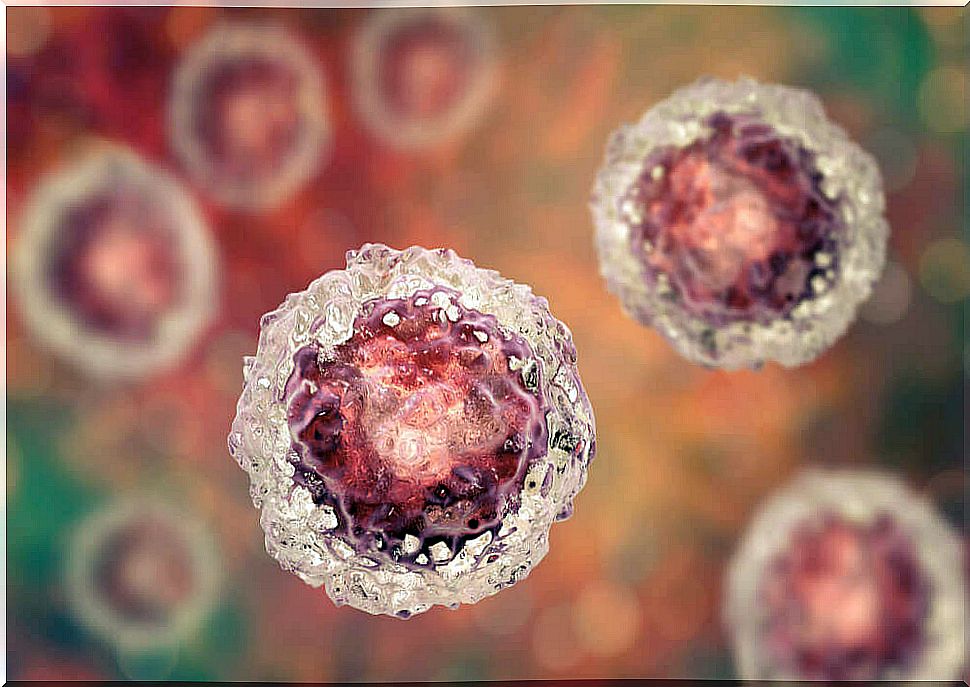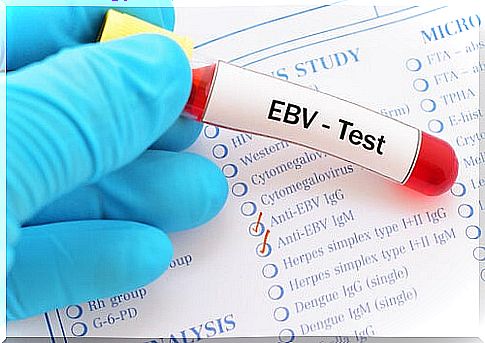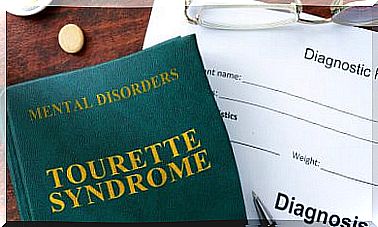Is Mononucleosis Contagious?
Is mononucleosis contagious? One of its most famous names is infectious mononucleosis , and also the disease of the kiss . All these titles seem to refer to the transmission between one person and another.
For this very reason, The idea has spread that mononucleosis is contagious only through kissing, but this is not so true . Like other diseases of its kind, the virus is present in droplets of saliva, so it can be transmitted through sneezing, coughing or contact with objects that contain remains of the droplets.
What is mononucleosis?
Mononucleosis is a viral disease that occurs relatively frequently in the general population, and in most cases resolves on its own. The consequences are unusual, so it does not leave sequels.
It can appear at any age and at any time of the year. However, it is more common in adolescents. and young adults. It is understood that, over the years, immunity is acquired against the infectious agent.
This infection is also known as the kissing disease , denomination that is not so exact. Although mononucleosis is contagious, it is not as contagious as other diseases caused by viruses. Hence, a epidemic is unthinkable in the current context of low transmissibility.
The main preventive measure to avoid getting the infection is avoiding contact with the saliva of a person who has active disease . This recommendation should be followed especially by pregnant women, those with immunodeficiencies and those who have undergone a transplant.

Mononucleosis is contagious
In most cases, the disease is caused by the Epstein-Barr virus . Once a person contracts it, the viral particle remains in the body for their entire life. However, mononucleosis is contagious only at specific times.
The disease has an incubation period between four and seven weeks. After this time, symptoms appear, lasting up to almost a month. At that precise stage, mononucleosis is relatively easily contagious, so preventive isolation of the patient is recommended.
There are cases, in children and adults, in which the disease does not cause symptoms after incubation. Some people only feel a little fatigue and decay, but nothing more. They can be associated with fatigue from other daily activities, work stress or lack of sufficient sleep.
Asymptomatic patients are active transmitters who inadvertently spread the virus. These are specific situations that are not detected because there is no medical consultation involved. In the absence of suspicion, tracking is bypassed
The time that must pass before the disease is not contagious is still in doubt. The most widespread opinion is that the potential for contagion is present up to 12 months after the symptoms have overcome . Despite this, transmission is not ruled out after 18 months of infectious mononucleosis.
Manifestations of the disease
The typical manifestations of the disease are fever and fatigue . They are usually the first symptoms to appear and the last to dissipate. It is very common to also have a sore throat, swollen tonsils, lymph nodes and spleen, as well as a headache.
Complications are not something to be expected in the evolution of mononucleosis. In any case, if they are present, they have a certain degree of severity that requires attention. Derived problems include the following:
- Spleen enlargement: in extreme cases it breaks.
- Liver disorders: the most common include jaundice and hepatitis.
- Neurological deficiencies: the meningitis or syndrome Guillain-Barré, as well as Epstein-Barr encephalitis are options.

What to do if I am diagnosed with mononucleosis?
Currently, there is no treatment to cure infectious mononucleosis. . The classic and standard recommendation is to rest and hydrate continuously, especially in the most acute phase. You can consume anti-inflammatories and pain relievers prescribed by a doctor.
It is important to avoid physical exertion and contact sports throughout the course of the pathology. One of the risks is that, when straining or suffering a blow, the spleen will rupture. Likewise, it is advisable to limit contact with other people to prevent contagion.
Since mononucleosis is contagious, personal items should not be shared, nor should food or drinks . The period of care is long, but compliance depends on the possibility of restricting transmission between close contacts.









